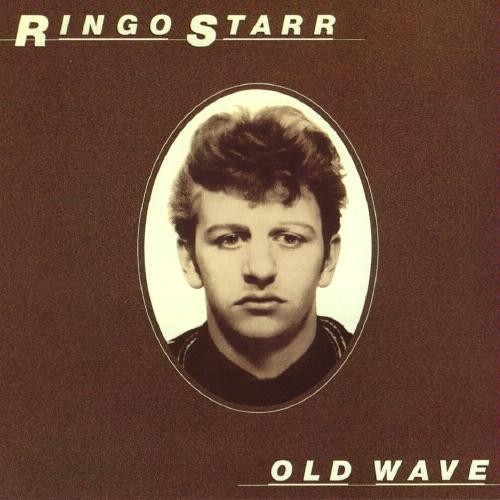
Old Wave (1983)

1. In My Car 2. Hopeless 3. Alibi 4. Be My Baby 5. She's About a Mover 6. I Keep Forgettin' 7. Picture Show Life 8. As Far as We Can Go 9. Everybody's in a Hurry But Me 10.Going Down 11.As Far as We Can Go (orgininal version)
To say that Old Wave has had a quiet existence would be something of an understatement. Originally released in 1983 and conspicuously not issued in the United States, it became one of the more elusive entries in the Ringo Starr catalogue. No reissue, no fanfare, and for decades, no real opportunity for casual discovery—unless one happened to stumble across it in the shadowy corners of YouTube, uploaded by some generous archivist with time to spare and a soft spot for underappreciated Starr efforts.
It’s easy to assume that the album’s title and sleeve—complete with a sepia-toned, vintage image of Mr. Starkey—might suggest a nostalgic return to early rock roots. But such assumptions are quickly dashed. This is not an “oldies” record in any traditional sense. In fact, it’s very much a creature of the early 1980s—bright, pop-friendly, and sonically in step with the era’s more polished, radio-minded efforts. That it didn’t receive a U.S. release likely had less to do with content and more with commerce: Ringo, by this point, simply wasn’t moving units.
Production was handled by Joe Walsh, and if that fact alone doesn’t telegraph the album’s sonic character, then the first few bars of In My Car will do the rest. This record doesn’t just resemble a Joe Walsh album—it essentially is a Joe Walsh album, with Ringo at the mic. Whether that’s a blessing or a liability depends entirely on how one feels about Walsh’s early ’80s solo output. And for the record, In My Car was later recorded by Walsh himself with only the faintest variations. One suspects the master tapes were just passed across the table during a foggy evening in Monte Carlo or Malibu, likely accompanied by something stronger than tea.
The album, for all its obscurity, is not without its merits. About half the tracks hold up reasonably well, assuming one’s tolerance for Walshian guitar textures and Ringo’s ever-affable delivery remains intact. There's nothing revelatory here—no buried classic, no career-defining moment—but there’s also nothing offensively poor. It’s a competent record from a competent time, when even B-level rockers could get away with an album full of good intentions and high production gloss.
In truth, Old Wave deserved better than total anonymity. It may not rank among Ringo’s essential recordings, but neither does it deserve to be wholly forgotten. At the very least, it’s a curious time capsule—of friendship, of fading stardom, and of an era when even fading stars still had the occasional spark left to offer. A modest achievement, but an oddly charming one all the same.